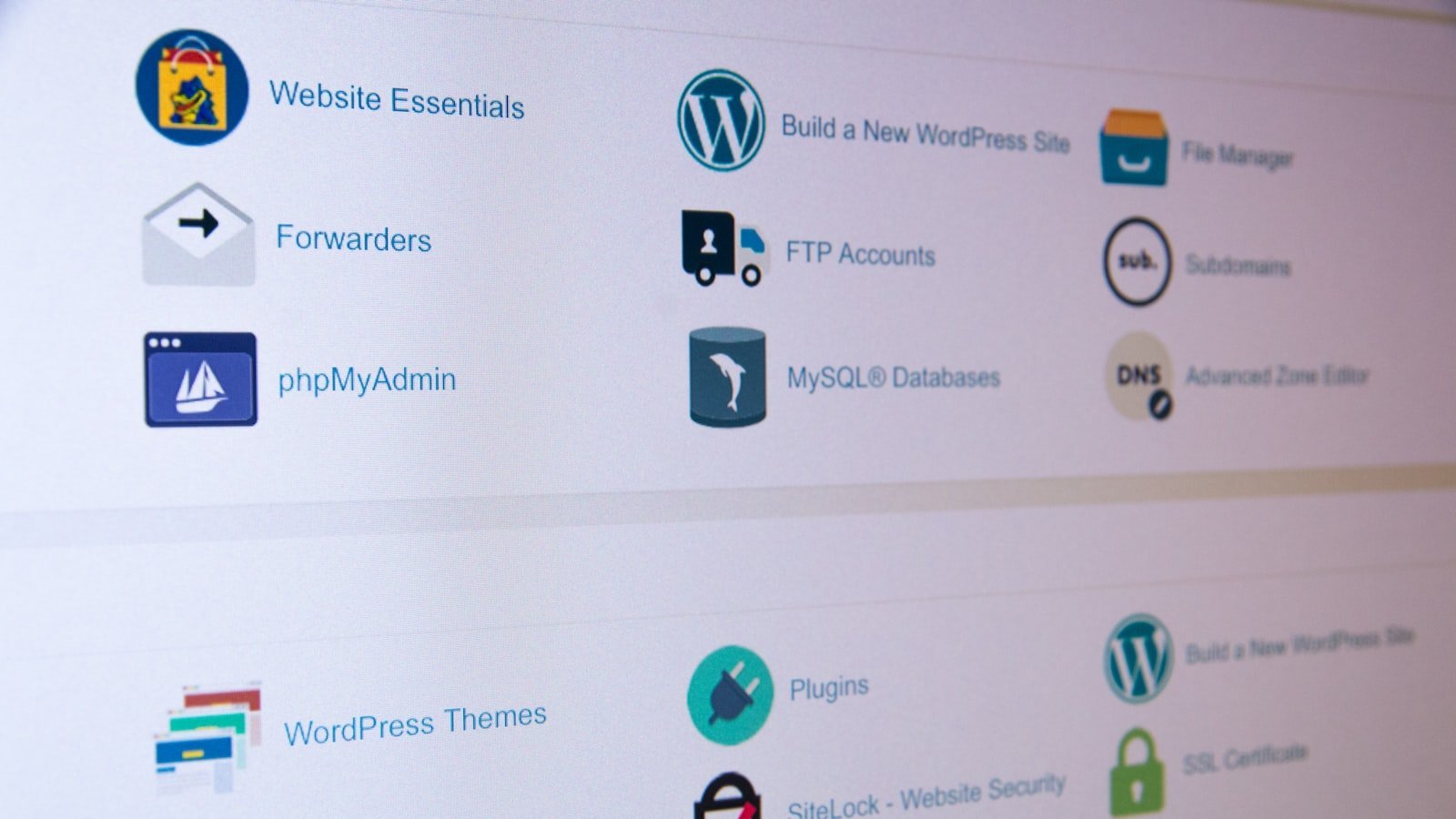Imagine your website as a high-performance race car, revving its engine with great potential to leave competitors in the dust. But wait, what’s missing? The secret weapon that can power up your website and skyrocket it to the top of search engine rankings lies in mastering the on-page SEO essentials. Just like a skilled driver who knows every nook and cranny of their race car, understanding the intricacies of on-page SEO is the key to unlocking your website’s true potential. In this article, we will delve into the art of optimizing your website’s content and structure, fine-tuning every element to perfection. Get ready to fuel your website for success and leave your competitors trailing behind, as we venture into the captivating world of on-page SEO essentials. 

rnrnUser experience plays a crucial role in the success of any website. To ensure that your visitors have a seamless browsing experience, it is important to implement effective on-page SEO strategies. These strategies not only help in maximizing organic traffic but also enhance the overall user experience on your website.rnrnOne of the key aspects of on-page SEO is optimizing your website’s meta tags and URLs. By including relevant keywords in your meta tags and structuring your URLs in a user-friendly manner, you can increase your website’s visibility in search engine results. A well-crafted meta description not only provides a brief overview of your page’s content but also entices users to click through to your website. Additionally, having clean and descriptive URLs makes it easier for both search engines and users to understand the context of your web page. Remember to keep your meta tags and URLs concise, compelling, and keyword-rich for maximum impact.rnrnAnother essential component of on-page SEO is creating engaging content that captivates your audience. Keyword research and optimization play a vital role in crafting compelling content that resonates with your target audience. By understanding the search intent and incorporating relevant keywords into your content, you can attract more targeted organic traffic to your website. But remember, the key here is to write for your audience, not just for search engines. Create informative, valuable, and engaging content that educates and entertains your visitors. Make use of headings, subheadings, and bullet points to break down your content and make it easier to read and digest. Utilize bold formatting to highlight important points and draw attention to key information. By placing yourself in your audience’s shoes and providing them with valuable content, you can enhance their overall experience on your website.rnrn rnLastly, optimizing your website’s speed and performance is crucial for both user experience and search engine ranking. Slow-loading web pages can frustrate users and result in higher bounce rates. To ensure optimal website speed, implement best practices such as minimizing HTTP requests, compressing images, and enabling browser caching. This not only improves user experience but also positively impacts your search engine rankings. A fast and responsive website encourages users to stay longer, explore more pages, and ultimately convert into customers.rnrnIn conclusion, mastering on-page SEO essentials is vital for enhancing user experience and driving organic traffic to your website. By optimizing your meta tags and URLs, creating engaging content through keyword research and optimization, and optimizing website speed and performance, you can power-up your website and provide a seamless experience for your visitors. Implement the strategies mentioned above and watch as your website climbs the ranks, attracting more organic traffic and improving overall user satisfaction.rn
rnLastly, optimizing your website’s speed and performance is crucial for both user experience and search engine ranking. Slow-loading web pages can frustrate users and result in higher bounce rates. To ensure optimal website speed, implement best practices such as minimizing HTTP requests, compressing images, and enabling browser caching. This not only improves user experience but also positively impacts your search engine rankings. A fast and responsive website encourages users to stay longer, explore more pages, and ultimately convert into customers.rnrnIn conclusion, mastering on-page SEO essentials is vital for enhancing user experience and driving organic traffic to your website. By optimizing your meta tags and URLs, creating engaging content through keyword research and optimization, and optimizing website speed and performance, you can power-up your website and provide a seamless experience for your visitors. Implement the strategies mentioned above and watch as your website climbs the ranks, attracting more organic traffic and improving overall user satisfaction.rn
Q&A
Q: Why is on-page SEO important for a website?
A: On-page SEO is crucial because it helps search engines understand the content of your website and rank it accordingly in search results. Implementing effective on-page SEO techniques greatly increases the visibility of your website, attracts organic traffic, and boosts its overall performance.
Q: What are some key elements of on-page SEO that website owners should focus on?
A: Some key elements of on-page SEO that website owners should pay attention to include optimizing page titles and meta descriptions, using relevant keywords naturally throughout the content, ensuring proper URL structure, creating high-quality and engaging content, and improving website loading speed. All these factors contribute to enhancing the search engine friendliness of a website.
Q: How can website owners optimize their page titles and meta descriptions?
A: To optimize page titles and meta descriptions, website owners should aim to create unique and descriptive titles that accurately summarize the page’s content. Including relevant keywords in both the title and meta description can help improve search engine rankings. It is essential to keep titles concise, compelling, and within the recommended character limits to ensure they are fully displayed in search results.
Q: What role do keywords play in on-page SEO?
A: Keywords play a crucial role in on-page SEO as they help search engines comprehend the context and relevance of a web page. By carefully researching and selecting relevant keywords for each page’s content, website owners can attract targeted organic traffic to their website. It is important to use keywords naturally throughout the content while maintaining its readability and avoiding keyword stuffing, which can have negative consequences.
Q: How does URL structure impact on-page SEO?
A: A well-structured URL can make it easier for search engines to understand the context of a web page. It is recommended to use short, descriptive, and keyword-rich URLs that accurately reflect the content. This facilitates search engine crawling and indexing, improving the chances of higher rankings. Avoiding lengthy, complex URLs or including unnecessary elements in them is vital for optimal on-page SEO.
Q: Can you provide some tips for creating high-quality content for better on-page SEO?
A: Absolutely! When creating content for on-page SEO, it is crucial to focus on quality and relevance. You should aim to deliver valuable information that engages your audience and encourages them to spend more time on your website. Incorporate relevant keywords naturally within the content and ensure proper formatting, headings, and subheadings. Additionally, using multimedia elements like images and videos can improve user experience and increase the likelihood of your content being shared or linked to, further boosting SEO.
Q: How does website loading speed impact on-page SEO?
A: Website loading speed plays a significant role in on-page SEO as it directly affects user experience. Slow-loading websites tend to have higher bounce rates and lower rankings. Optimizing website loading speed includes compressing images, leveraging browser caching, minimizing server response time, and reducing the number of HTTP requests, among other techniques. By ensuring fast loading times, website owners can not only improve user satisfaction but also signal to search engines that their website provides a positive user experience, thereby boosting SEO efforts.
Q: Are there any other on-page SEO factors that website owners should consider?
A: Certainly! In addition to the aforementioned factors, website owners should also focus on creating a mobile-friendly design, utilizing internal and external linking, optimizing images with alt tags, ensuring proper header tags hierarchy, and utilizing schema markup to provide additional context for search engines. All of these elements contribute to a comprehensive on-page SEO strategy that can greatly benefit a website’s performance and visibility in search engine rankings.
Wrapping Up
As we come to the end of this exhilarating journey to power up your website, one thing is crystal clear – on-page SEO essentials are the keys to unlocking your website’s true potential. By mastering the art of optimizing your website’s content, structure, and technical aspects, you have the ability to soar higher than you ever imagined.
Just like a wizard harnessing the elements to create magic, you too possess the power to shape your virtual realm. Armed with the knowledge of discovering the perfect keywords, crafting compelling meta descriptions, and creating captivating content, your website will rise from the depths of obscurity to conquer the digital landscape.
But remember, dear reader, that the path to SEO mastery is a continuous one. The digital realm is ever-evolving, and so too must be your strategies. Stay vigilant, embrace change, and adapt to the ever-shifting algorithms that govern this realm.
As we bid adieu, take a moment to reflect on the journey we have embarked upon together. From unraveling the secrets of on-page optimization to leaving no stone unturned in our quest for excellence, we have traversed great peaks and valleys.
Now armed with these on-page SEO essentials, fear not the vast wilderness of cyberspace. You have tamed the wild beast, and your website now stands tall, a shining beacon amidst the darkness.
May your rankings skyrocket, your traffic overflow, and your success know no bounds. Go forth, intrepid digital adventurer, and conquer the online world with your newfound mastery of on-page SEO essentials.

